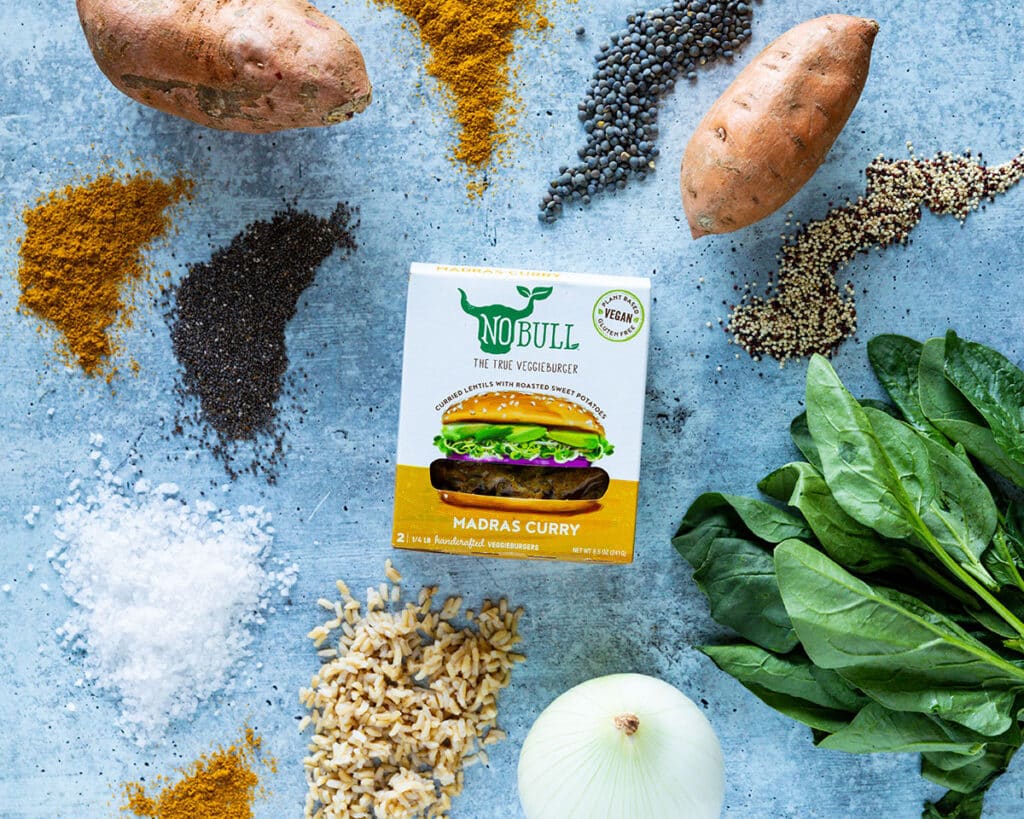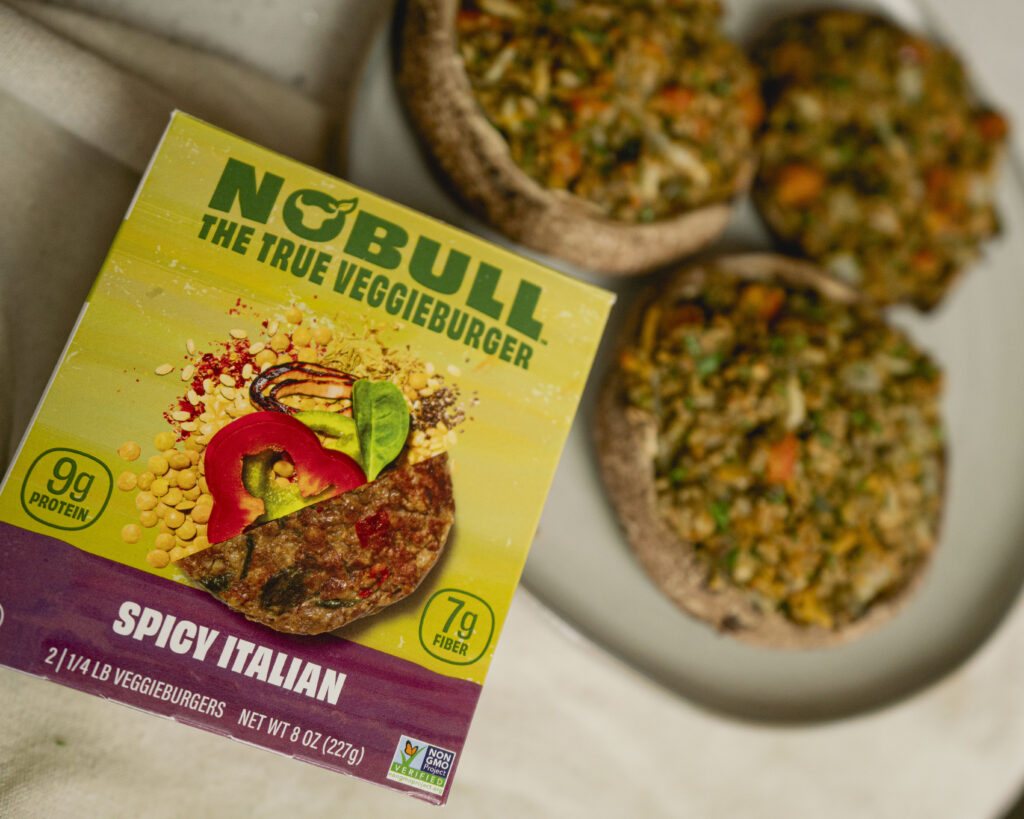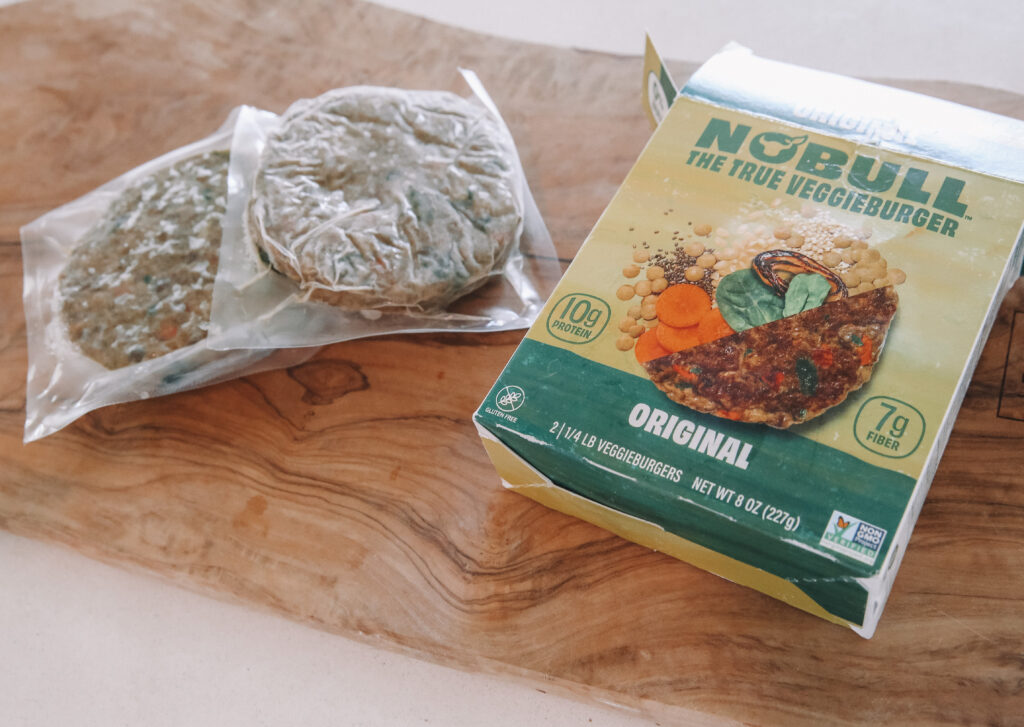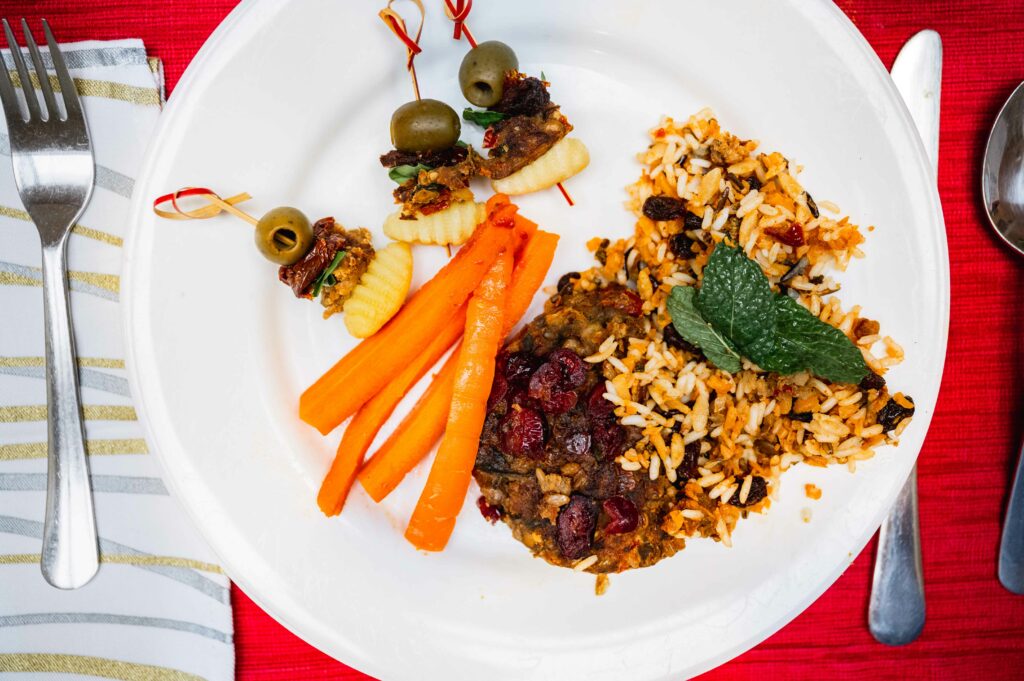Lentils are an underrated food source that are perfect for plant-based eaters because of all the amazing benefits packed into this powerhouse food. There are many types of lentils too! Brown, green, yellow, red, puy, beluga and more– each has its own unique flavor and use in many tasty, traditional recipes.
Green lentils are the core base of our NoBull Burgers– they bind our veggieburgers together while providing an amazing taste and texture!
Want to know why we love lentils so much? Read on for 7 ways lentils are a powerhouse food for any diet.
7 Ways Lentils Are a Powerhouse Food For Plant-Based Eaters
Lentils aren’t just lens-shaped legumes, they are jam-packed with a multitude of vitamins and iron!
In fact, lentils have so much iron that adding a few servings per week to your diet can prevent– and even reverse– iron deficiency (anemia).
That’s just one of the many amazing facts about this natural food!
Lentils are a powerhouse of protein
Humans need 50-75 grams of protein per day. One cup of lentils has 18 grams, making lentils just second to soybeans for the highest protein-to-food energy ratio in the legume/bean family (beating an entire can of chickpeas).
Lentils contain both essential and non-essential amino acids, which helps your body use protein to keep your muscles strong!
Lentils are a powerhouse source of essential nutrients
You know what they say: Tiny food, huge numbers of vitamins (Do they say that? Well, we are). One serving of lentils have a surprising amount of essential nutrients, including:
Folate (45% daily value), Iron (25%), Manganese (24%), Phosphorus (26%), Thiamine (15%), Pantothenic acid (13%), Vitamin B (14%), Magnesium (10%), Copper (13%), Zinc (13%), Vitamin K, Vitamin C, Calcium, Potassium, Selenium, Boron, Riboflavin, Niacin, Pantothenic Acid, Pyridoxine, and more.
Lentils are low in fat and sodium and provide good sources of fat, fiber and carbs– all of which your body needs!
Lentils are a powerhouse source of prebiotics
Did you know you need both pre- and probiotics? Lentils provide prebiotic carbohydrates, which help the gut microbiome! A healthy gut plays a major part in disease prevention.
Lentils are fabulous for your digestive tract
Lentils are low in digestible starch and high in slowly digested starch, which makes them a wonder food for diabetics, and for everyone, honestly.
Lentils also help your digestive tract get rid of more waste, which protects against colon cancer.
Since they digest slowly, they help you feel full longer too! This reduces late night snacking and overeating.
Lentils have nutrients that protect against disease
Lentils have many types of phytochemicals, including polyphenols which have antioxidant benefits –plus, lentils have more of these than chickpeas and green peas.
The medical studies above show that phytochemicals in lentils can help with:
- Reduce cancer cell growth
- Decrease inflammation
- Balance blood sugar, protecting against type 2 diabetes and obesity
- Protect the nervous system
- Act as antifungals
- Antibacterial
- Antiviral
- Protect against radiation
- Increase good cholesterol and decrease bad cholesterol and triglycerides, protecting against heart disease and lowering blood pressure
Lentils are one of the easiest legumes to cook
Lentils not only beat out other legumes for nutrition, but they’re also easier to cook!
When lentils are dry, they don’t require soaking like most beans. All they need is a quick rinsing! Most types of lentils will take 20 minutes of cooking time, while red lentils only need 5 minutes.
Lentil preparation tips:
- There are endless ways to incorporate lentils into your diet, from stews to salads to pasta dishes. Combining lentils with whole grains (like rice or seeds) makes a complete protein source.
- Never eat raw lentils that aren’t sprouted, and make sure you cook them fully. The lectins, when ingested raw, cause diarrhea and vomiting, among other dangerous issues. However, when fully cooked, they’re safe.
Lentils are amazing when you blend them with spices like curry and replace meat in dishes like tacos. You can make lentil hummus, falafel, and even lentil veggie burgers– like our NoBull Burgers.
Legumes are historically reliable
People have been relying on lentils as a major food source since at least 8000 BCE. Lentils were first used in the Middle East, reaching Greece by 6000 BCE.
While Greeks considered lentils part of a poor man’s diet, the Egyptians revered them. They were found in the tombs at Thebes belonging to royalty.
Lentils: Are there any downsides?
The only possible downsides to eating lentils are gas and the fact that they contain lectins, which bother some people. If lentils bother your stomach, try eating less, or avoid them if you always have trouble.
For a lentil-based veggie burger with 100% plant foods, try Nobull!
Nobull burgers are on a mission to provide veggieburgers without any additives, and our recipe features green lentils, as well as rice for a complete protein source and more nutrient-rich plant foods.
We’re 100% plants and 0% bull. Our burgers are perfect for when you want plant-based food that tastes amazing, and is just like you would make yourself – but without the work.
See for yourself and try us today!






